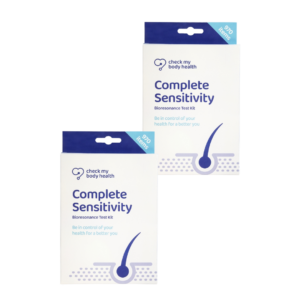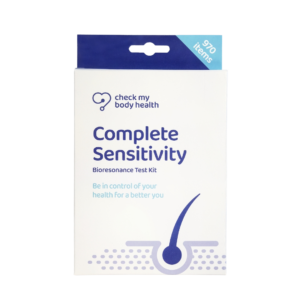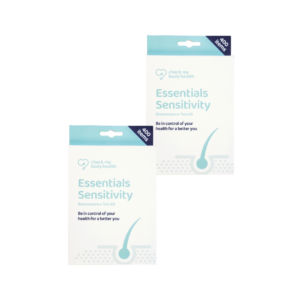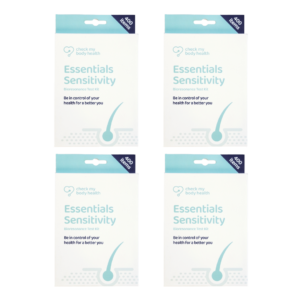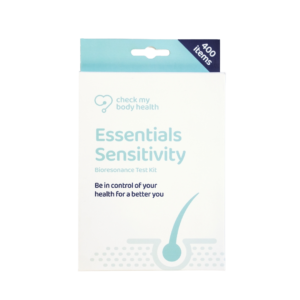Published June 19, 2020
Much is made of the importance of vitamins for the body, but minerals have an important part to play in maintaining a healthy life.
Minerals are ‘inorganic’ substances, (unlike vitamins which are organic) and gleaned in their natural state from rocks and ores. The only reason we can get minerals from plants is because they import it from the soil – likewise, minerals found in animals are obtained because they eat the plants that contain them. The important point is that we do have enough of the right minerals in our bodies, otherwise a deficiency occurs.
Minerals are basically divided into two groups – major minerals and trace elements, but both are equally as important to the body, just in lesser quantities. If you are still able to remember those long-ago student days, you may well recollect having to learn the ‘periodic table’ – a nightmare for most of us! Mineral names are derived from mainly ancient Greek words or named after the person or scientist who discovered them, hence why some of the names are tongue-twisters.
How to avoid mineral deficiency
In most cases, it is simply a case of eating a healthy, well-balanced diet, but some deficiencies cannot necessarily be explained. To this day, scientists and nutritionists, high ranking medical practitioners all scratch their heads about such deficiencies, as finding the cause has been almost impossible and remains a mystery.
If you look at foodstuff labelling, you may often see the initials RDA or RDI (Recommended Daily Allowance or Recommended Daily Intake) and percentages of what is included in each food. However, not all food is labelled correctly, even though there are legislation guidelines to be adhered to. RDAs are often quoted in a generous way so as to ensure that enough is consumed for health, but not too much, which may well trigger side effects at a toxic level – deficiencies are therefore not the only thing to be concerned about.
It is extremely unlikely that you would overdose on minerals in a normal balanced diet, but caution is needed should you be taking regular supplements. Before taking supplements as an addition to a balanced diet for any reason, do consult your GP or medical practitioner.
Mineral deficiencies can be different in men and women, believe it or not.
Essential Minerals
Below is a list of essential minerals that your body need to function at a tip top level, and which foodstuffs supply that mineral. It may seem a long list, but many of these only need to be consumed in ‘micro quantities’, depending on how much you actually store in your body. Not all GPs will be fully up to speed with nutritional values and should he or she feel that you have a deficiency, you may well be referred to an experienced nutritionist for consultation.
A Synopsis of Major Minerals
Calcium
The main function of calcium is for healthy bone growth. However, its functionality is more than just bones – calcium plays an active part in maintaining healthy cells and ease of muscle movement.
Calcium can be gleaned from foods such as milk and dairy products, green leafy vegetables, and canned fish, such as salmon or sardines.
Phosphorus
Plays a part in bone growth including teeth as well as other more complex genetic transmission work, which frankly is too scientific to explain! It is also a bit of a work horse when it comes to blood balance (the pH balance), and metabolic activity.
Phosphorus is found in most foods but mainly in those of high protein content such as meat, some fish, eggs, milk and poultry. For vegetarians and vegans, phosphorus is available in nuts, seeds, grains and dried beans.
Magnesium
Paramount in the production and protection of body tissue (including bones), and acts by moving nutrients around the body. You can find magnesium in seeds, nuts, grains, dry beans and dark green fruits and vegetables.
Other major minerals such as chloride, potassium and sodium are known as principal electrolytes and are categorised differently. Sulphur is in abundance in most proteins, so if your diet consists of the essential amount, you are certainly covered. Around 0.8g per kilo of body weight is recommended by nutritionists.
Trace Elements
Trace elements are chromium, copper, fluoride, iodine, iron, manganese, molybdenum, selenium, and zinc. Each one of these plays an intrinsic part in your quest for a healthy body but are needed in much lower quantities. Apart from some of them, you may not have heard of the rest!
Chromium
If you consume fat or carbohydrates in your diet, you need chromium. This essential mineral breaks these food groups down, creating critical fatty acids and synthesising cholesterol. This, in turn, provides an important boost to countless organs – most notably the brain. Chromium also plays a key role in breaking down glucose and improving sensitivity toward insulin. Broccoli is arguably the best – and healthiest – source of chromium in food. The mineral can also be found in animal liver and yeast.
Copper
Copper and iron form a dream team in the body to promote the growth and development of red blood cells. This will provide strong and healthy bones, reducing the risk of osteoarthritis, and providing sensitivity to nerve endings. Copper is also critical to a potent and healthy immune system. The benefits to blood vessels provided by copper will also protect against heart disease. Animal liver or lobster is the richest source of copper, but vegetarians will find it in shiitake mushrooms, leafy greens and snackable nuts and seeds. Just watch the fat content in the latter. That could undo the good work of the copper.
Fluoride
Fluoride is famously found in toothpaste, as it strengthens the enamel found in teeth. By consuming fluoride, you can go some way to managing the damage inflicted on the teeth by sugars and carbohydrates. You will not want to tuck into a tube of toothpaste for dinner though, so gain fluoride from spinach, baked potatoes and black tea. Fluoride is also found in grapes, so consider bringing these into your snack regime. This means that wine contains fluoride, though we are not sure that is a dentist-approved lifestyle choice.
Iodine
Iodine is a mineral that creates thyroid hormones. Linked to the thyroid gland in the throat, these hormones need to remain in balance. Iodine ensures that the body metabolises calories appropriately, and that energy levels are maintained. A lack of iodine can lead to weight gain, fuzzy thinking, chronic fatigue and depression. Seaweed and tuna are high in iodine, and most dairy products – particularly eggs – contain large traces. You will also find iodine in basic table salt, so this is arguably the easiest way to ingest traces of the mineral.
Iron
As previously discussed, iron works alongside copper to create new red blood cells. Iron then binds with haemoglobin, a protein in the body, to create oxyhaemoglobin. The upshot of this is the production of oxygen in the body. This is used to transport blood, ensuring that it reaches all necessary organs. This staves off serious conditions such as anaemia and can be a powerful weapon against chronic fatigue. Red meat is high in iron, as is spinach and quinoa. Tinned baked beans are another great source of iron.
Manganese
If the human body is considered a piece of organic machinery, manganese is the oil in the engine. Every part of the body relies upon manganese to function properly. This essential mineral works with the vitamins found in food, ensuring that they perform their duties in bolstering the body appropriately. The result will be stronger bones and a healthier blood flow. Gain manganese by eating leafy green vegetables, brown rice, wholemeal bread, almonds, and even dark chocolate if you are looking for a little health-conscious indulgence.
Molybdenum
Molybdenum is your body’s defence against toxins. When you consume food that contains molybdenum, your essential organs will undergo a purification and detoxification process. This prevents any unwanted pollutants from building up within the body, hindering the performance of organs and muscles. Molybdenum also aids with the production of amino acids. Legumes and grains are a natural source, but carnivores will also find molybdenum in animal organs, such as hearts and livers.
Selenium
Selenium plays a keep role in the human reproductive system. This makes it particularly important for pregnant women or anybody aiming to conceive. This mineral is also a natural antibiotic, working tirelessly to fight infection with the body. Snacking on Brazil nuts once or twice a week will keep your selenium levels safely topped up. A little goes a long way though, and you can have too much of a good thing. Do not gorge on these nuts to avoid selenium toxicity, especially if you also eat fish regularly.
Zinc
Almost every cell in the human body contains zinc. These cells rely upon zinc to grow and divide. This means that zinc plays a prominent role in the healing of cuts and wounds, as well as breaking down carbohydrates consumed through food. In addition, zinc plays a key role in the human senses of scent and taste and bolsters the immune system. Shellfish is a low-calorie food option that is packed with zinc. If seafood is not your thing, turn to legumes such as beans, chickpeas and lentils.
Written by Bev Walton
Food Writer and Nutritionist, dietician
A chef of over 35 years with experience in all types of cuisine, dietary plans, recipe development, health and nutrition. I have been writing for over 10 years for both magazines, websites and ghostwriting for ebooks, Kindle and fully published books. I have a degree in nutrition and dietetics and work with restaurants and organisations within the healthcare profession. I am also able to take high quality photographs of recipes created. No writing task is too great, and whilst I specialise in the above, I am able to write about any topic you throw at me. Member of the Guild of food writers.



